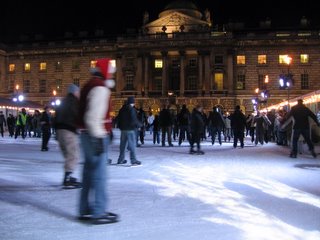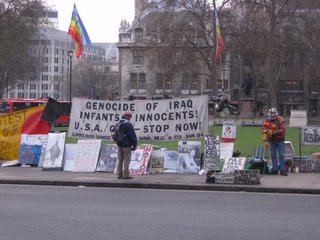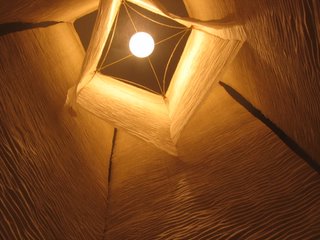
Happy Birthday Gabe Mastico
Preface
Yet another perspective upon the blog has reinforced the sense that people see it as a kind of elongated lament, or, at least, a complaint. Almost without reservation, that is used as a way of suggesting ingratitude. How can you be in such a place and yet dare to be unhappy? It’s that judgmental edge that troubles me.
My response to this is twofold. Firstly, I am not anywhere near so troubled as people seem to think the blog indicates. That is partly a reflection of how, and I am sorry to admit it, the blog is thoroughly sanitized. It is a drama – more of a dramatic reenactment of a life than a direct account thereof. The reasons for that must be obvious. Real lives are boring, especially when they revolve around pubs and libraries. Likewise, real thoughts jar in people’s minds. They provoke negative emotions, recriminations, jealousies, and the rest. The line to walk is one between honesty of direct statement and honesty of intention. The fact that even carefully worded entries are so frequently misunderstood is a reminder of why this must be done.
The second part of the response is to raise the question of what leads to happiness. Certainly, being involved in a worthwhile enterprise is a great boon. Some of the frustrations of the program circumscribe that, but certainly do not reduce it to such a point as some people seem to believe. Ultimately, I want the freedom to launch my own inquiries and begin tackling questions from my own direction and on the strength of my own arguments. This is what I thought grad school would be. Additionally, I am troubled by the increasing evidence that the meritocracy that feeds this place is a kind of sham. It’s not that people haven’t worked very hard to be here. Everyone here is clever and nobody is really lazy. At the same time, nobody is particularly disadvantaged either. Certainly, they have done more than people with comparable advantages – even people with greater ones – but they are not drawn from all the corners of humanity. We come from the corners of similar streets. Seeing that further increases my admiration of people like Viktoria Prokhorova, as well as Kerrie and Noral Hop Wo, who are out there working very actively to help mitigate some of the problems and injustices in the world.
Finally, the non-signposted part. The vital foundation of human happiness, at least for me, is in being surrounded by people who you care about. While I’ve made some really interesting friends here, there simply can’t be the kind of emotional depth that allows you to confront frustration, disappointment, loneliness, or anger. Those kind of anchoring relationships take years to form and are not lightly left behind, thousands of kilometres away. Also, life becomes much more animated when it is based around some shared romantic project: a tackling of problems together, a sharing of disparate interests and areas of knowledge, and the development of an identity that is at least provisionally shared. The lack of any such project is an impediment to realizing potential: both for achievement and enjoyment.
In hopes that this might help my perspective be more easily understood, I shall proceed.

Two Days in London
Unsure of when we were meant to meet, I lingered in Oxford on Wednesday until I got a call from Ian (Dr. Ian Townsend-Gault of the UBC Law School, to be formal about it). It was then a scramble to the train station – where news of a delay was conveyed – and thus to the bus station. Even allowing a three minute pause to buy an Oyster card, I made rather good time to the house in Islington where we had dinner with Ian’s uncle-in-law, two of the uncle-in-law’s daughters, and another family member. Apparently, the house belongs to one of the members of the Barnes and Noble families, of book selling fame. Ian’s uncle-in-law also seems to have led a fascinating life: interviewing Mao in 1941, while living in China, for instance. The house was certainly nicely adorned with art, as well as being well saturated with interesting conversation.
Included in that conversation was an invitation to meet Ian’s uncle-in-law’s ‘circle’ at a pub in London today. While I accepted enthusiastically, having heard them universally described as a highly interesting group, it did not work out in the end. Despite arriving my standard fifteen minutes early and waiting a full hour and a half at what I am certain was the right pub, nobody I recognized arrived. I even conducted five complete reconnaissance missions through the whole pub looking for them. After the staff began to universally direct scowls of disapproval in my direction (despite having bought a drink some time ago in an attempt to placate them), I eventually departed. Perhaps I misunderstood something about the place and time where we were to meet.

But, I am getting ahead of myself. After the fine dinner and interesting conversation, I spent the night at the flat of another former student of Ian’s. After waking at an hour I usually strive to avoid, I accompanied him to Victoria Station and the Heathrow Express before making my ultimately ill-fated trek to Mulligan’s. My thanks go out to Ian, once again, for his hospitality, as well as his overall – and very welcome – way of listening to you. Neither patronizing nor overpowering, I have always appreciated it.
After abandoning my vigil at the pub, I met Michelle Bourbonnais: a young woman with whom I graduated from UBC, who was also part of my international law seminar with Michael Byers, and who is low living and working in London. We met at the Tate Modern and took a wander through the newly reorganized galleries. Everything has shifted around since I went there with Sarah Johnston in September. I couldn’t even find two of my favourite pieces: a spherical, organic looking sculpture evocative of a shell (used as one of my LiveJournal icons) and an animated film from South Africa called A History of the Main Complaint.
One new piece that Michelle and I both enjoyed was a large abstract painting done by Joan Mitchell. The work is untitled, and I found it particularly captivating insofar as it includes the kind of patterns that your brain tends to just mark off as ‘very complex,’ unless, for some reason, you choose to really delve into them, or are compelled to. The impossible intricacy of an oil spot on cement you cannot really delve into until you can cut off the part of your brain that trivializes and ignores it. Then, you can just wander down its avenues – each filled with ephemeral epiphanies about the nature of space and perception.

After wandering back across the Millennium Bridge towards Saint Paul’s, we walked to Covent Garden and spent a couple of hours conversing in a place indelicately called ‘The Coal Hole.” Along with the traditional smoky pub atmosphere, it had the noteworthy flourish of a collection of friezes near the ceiling: cross-illuminated and made from something resembling white marble. It was a curious touch, but an appreciated one. It was certainly good to see and speak with Michelle. I was in good spirits when I boarded to coach back to Oxford at Victoria Station.
PS. I am reading an excellent new book, but let that be a subject for a later post. I’d rather get back to it than yack about it, right now.
